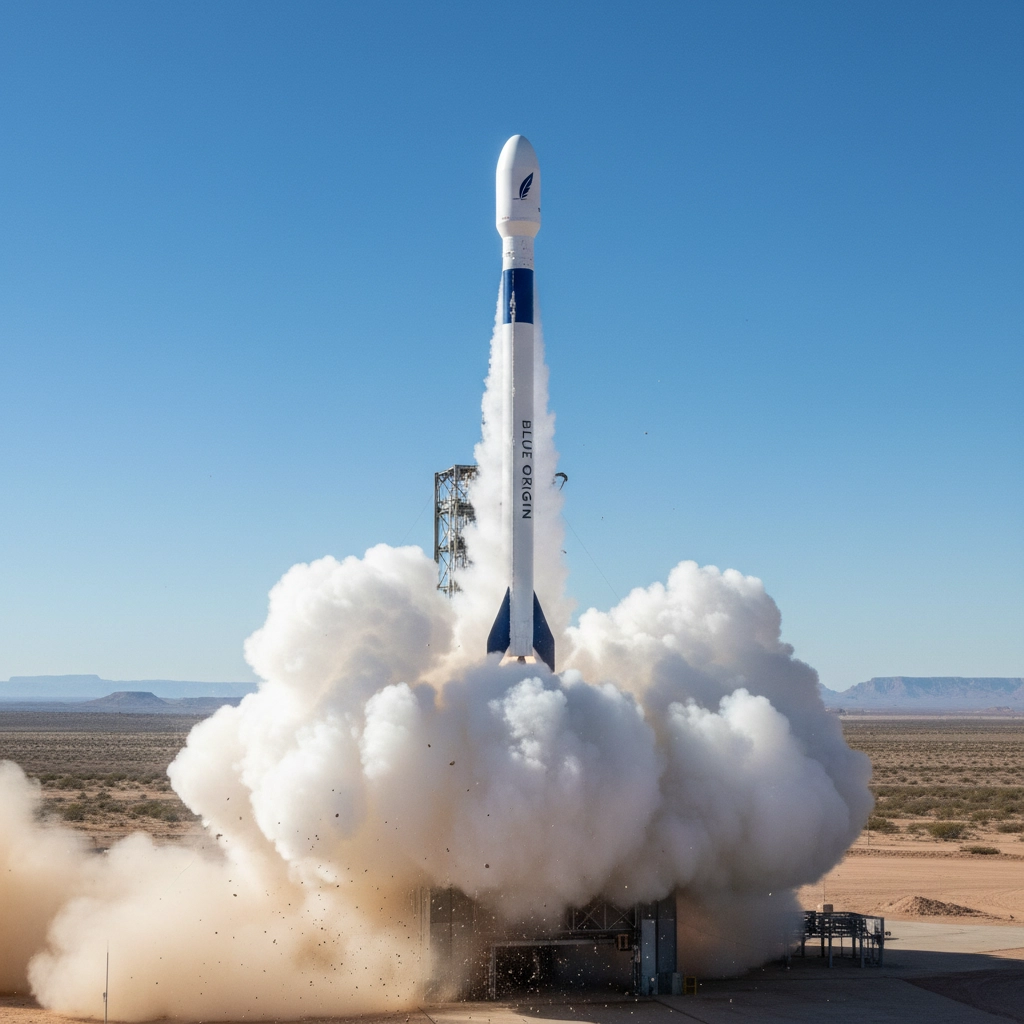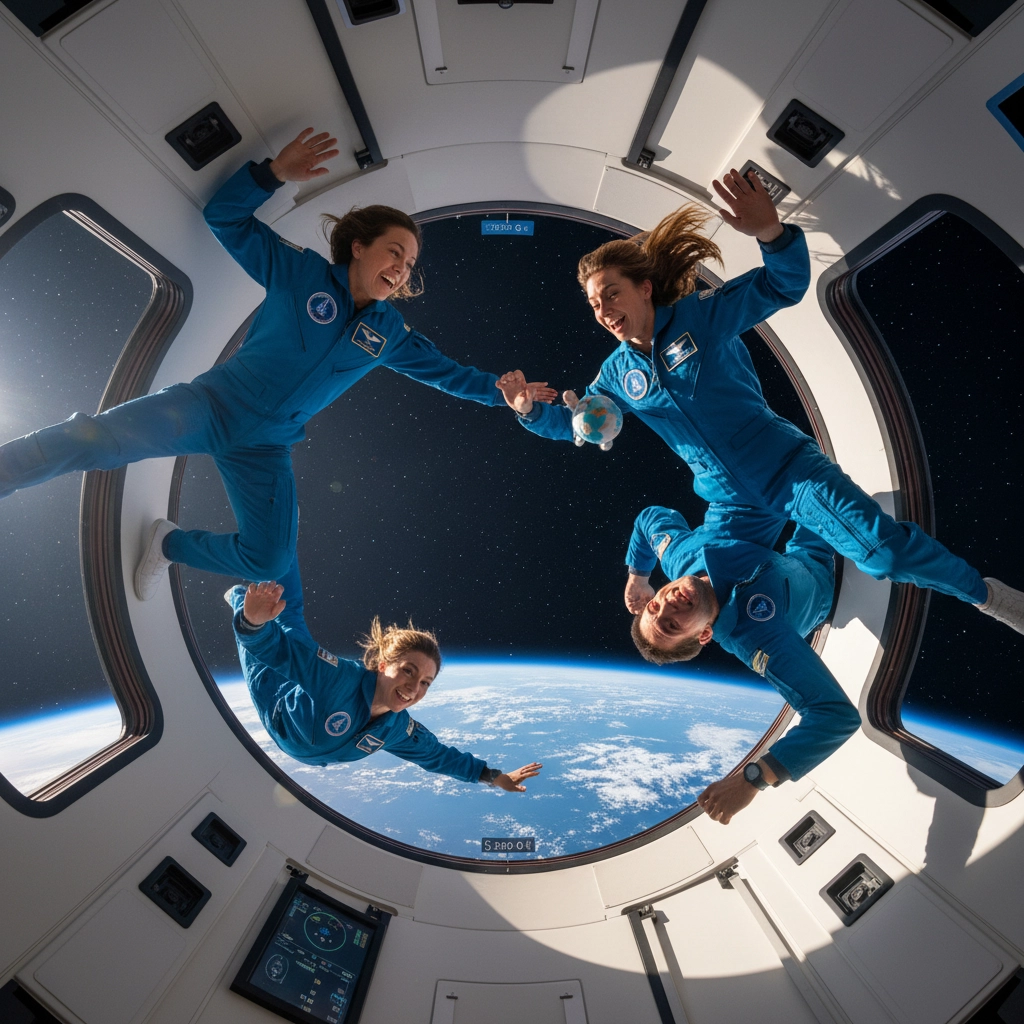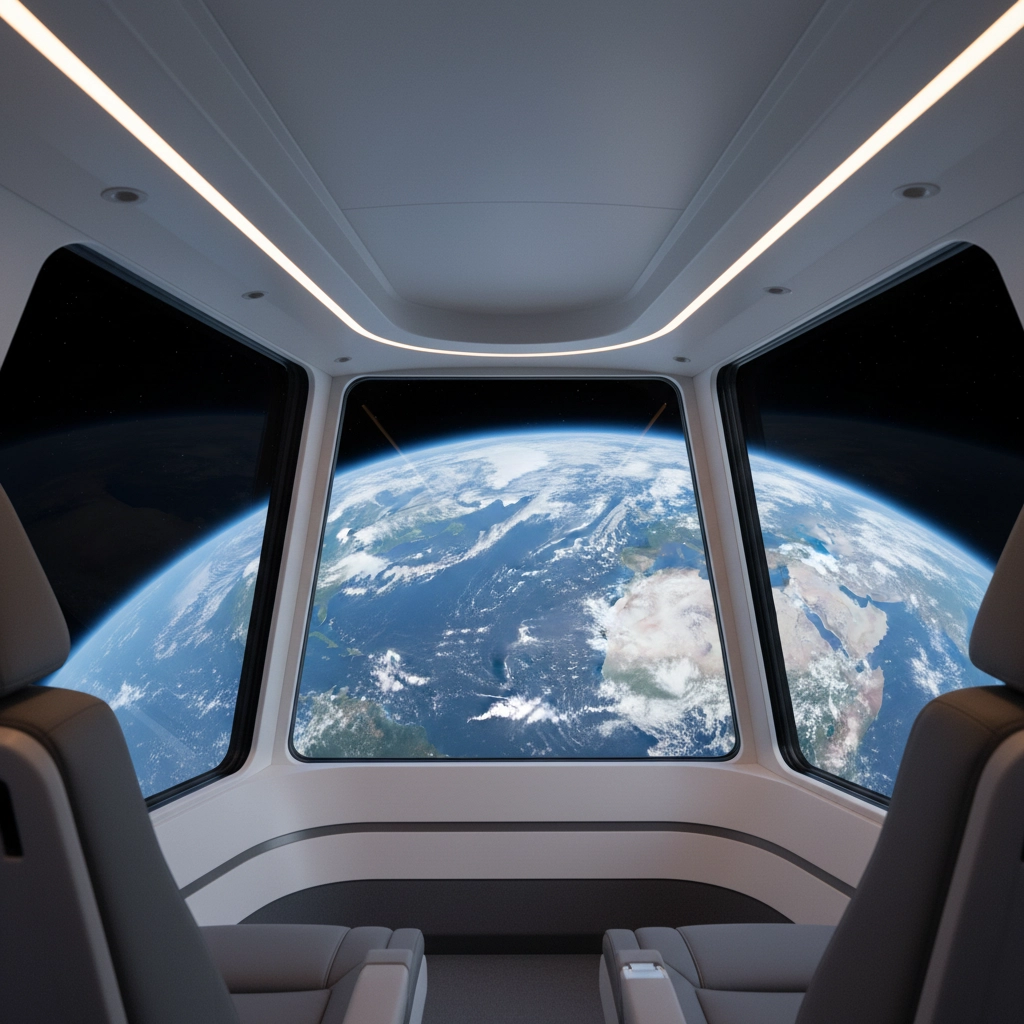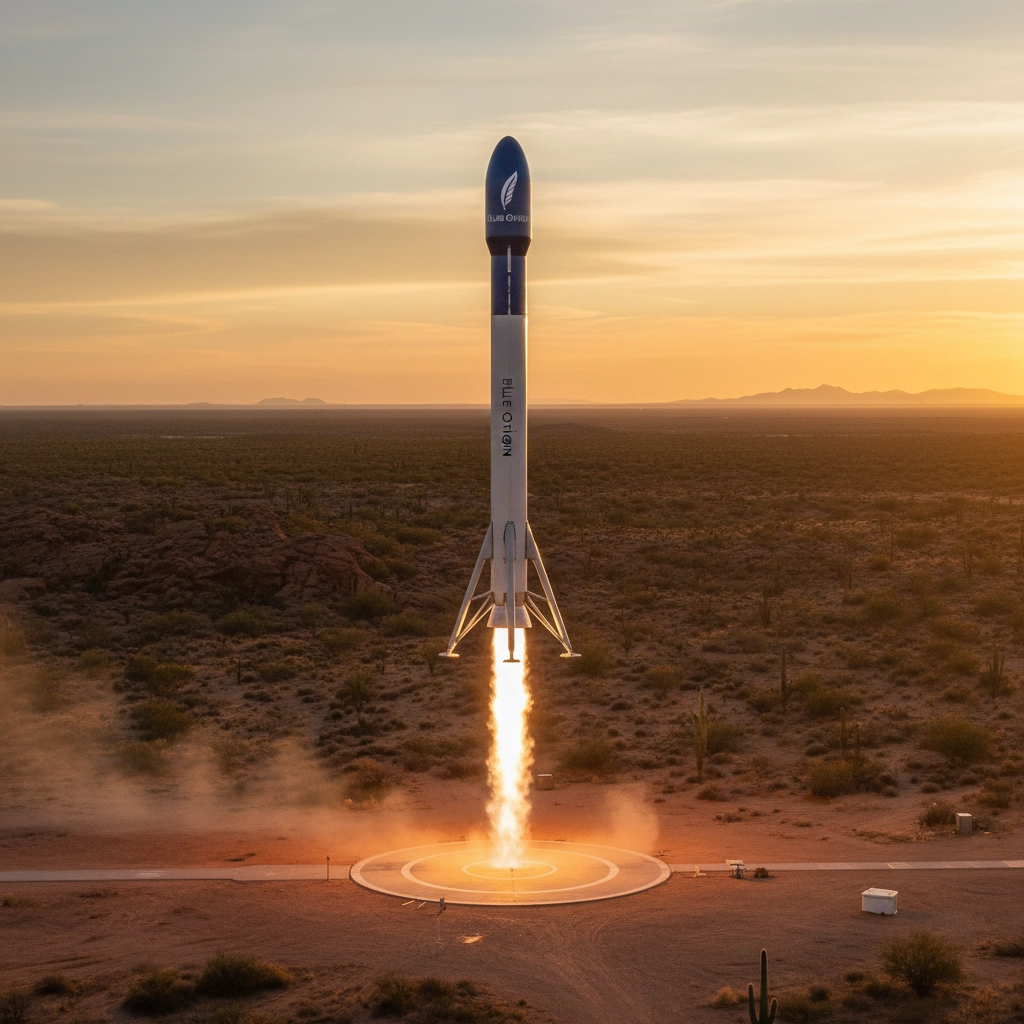Have you ever wondered what it feels like to float weightlessly while gazing down at Earth from the edge of space? Blue Origin's 15th space tourism mission just made that dream a little more attainable for everyday adventurers. On October 8, 2025, six brave space travelers experienced the ultimate thrill ride aboard the New Shepard vehicle, marking another significant milestone in making commercial space travel as routine as boarding a transcontinental flight.
This wasn't just another launch: it was a powerful demonstration that space tourism is rapidly evolving from an exclusive privilege to an accessible adventure. Therefore, the implications extend far beyond this single mission, offering a glimpse into a future where space travel becomes part of our regular vacation planning.
The Mission That Made Headlines
The New Shepard vehicle lifted off from Blue Origin's West Texas launch site at precisely 9:40 a.m. EDT, carrying what the company dubbed the "Space Nomads." However, what made this particular mission especially intriguing was the inclusion of a mystery passenger who only revealed their identity after returning safely to Earth.

As a result, this element of surprise added an extra layer of excitement to an already thrilling adventure. The six passengers experienced approximately four minutes of weightlessness, witnessing Earth's curvature through the vehicle's massive windows: a perspective that fundamentally changes how people view our planet and their place in the universe.
The flight reached the internationally recognized boundary of space, crossing the Kármán line at 100 kilometers above Earth. Moreover, each passenger became an official astronaut, earning their wings in the most literal sense possible while experiencing forces that few humans have ever encountered.
What Sets This Mission Apart
Blue Origin's 15th mission represents more than just another successful flight: it showcases the incredible reliability and consistency that commercial space companies are achieving. Furthermore, the fact that this was their 15th tourism mission demonstrates how quickly the industry is advancing toward true routine operations.
The New Shepard system has proven itself through repeated successful flights, building confidence among both operators and future passengers. Additionally, each mission provides valuable data and experience that contributes to making space travel even safer and more accessible for everyone.

The diversity of passengers also highlights how space tourism is becoming more inclusive. As a child, did you ever dream of becoming an astronaut? Today's space tourists come from all walks of life, proving that space exploration is no longer limited to government-trained professionals with decades of specialized preparation.
The Ultimate Adventure Experience
Imagine strapping yourself into a spacecraft, feeling the powerful thrust as you accelerate beyond the atmosphere, and then suddenly experiencing complete silence and weightlessness. The New Shepard experience offers passengers something that cannot be replicated anywhere on Earth: the profound perspective shift that comes with seeing our planet as a small, precious blue marble suspended in the infinite darkness of space.
During those precious minutes of weightlessness, passengers float freely in the cabin, performing somersaults and experiencing a sensation that defies description. However, it's not just the physical experience that transforms people: it's the emotional and psychological impact of witnessing Earth from space that creates lasting change in how they perceive life and their connection to the planet.
The massive windows of the New Shepard capsule provide unobstructed views that allow passengers to fully immerse themselves in the experience. As a result, many describe feeling a profound sense of unity with Earth and humanity, often referred to as the "overview effect."
Technology That Makes Dreams Reality
Blue Origin's New Shepard represents the cutting edge of reusable rocket technology. The vehicle launches vertically, separates from its booster, and then gently returns to Earth using parachutes while the booster lands itself for reuse. Therefore, this technological achievement significantly reduces the environmental impact and operational complexity of space missions.

The autonomous flight system requires no pilot, instead relying on sophisticated computers and redundant safety systems to ensure passenger security throughout the journey. Moreover, the capsule's design prioritizes passenger experience, with large windows and comfortable seating that allows everyone to fully enjoy their time in space.
The turnaround time between missions continues to improve, demonstrating how space tourism operations are becoming more efficient and streamlined. Furthermore, these technological advances are paving the way for even more ambitious projects, including orbital space stations and longer-duration space experiences.
A Growing Industry of Adventure
Blue Origin isn't operating in isolation: they're part of a rapidly expanding ecosystem of companies making space more accessible. Virgin Galactic, SpaceX, and other pioneers are each contributing unique approaches to commercial space travel, creating healthy competition that benefits everyone interested in space adventure.
This diversity of options means that future space tourists will have choices in terms of experience duration, altitude, and even destination. Additionally, as more companies enter the market, the variety of space adventures will continue to expand, offering everything from brief suborbital hops to multi-day orbital stays.
The success of missions like Blue Origin's 15th tourism flight also attracts investment and talent to the space industry, accelerating development of new technologies and experiences. As a result, what seems extraordinary today will likely become commonplace within the next decade.
Making Space Travel Routine
The most remarkable aspect of Blue Origin's 15th mission isn't the technology or even the passenger experience: it's how routine the operation has become. The launch proceeded smoothly, the passengers enjoyed their flight, and the vehicle returned safely, all with minimal fanfare or technical complications.

This operational maturity represents exactly what the space tourism industry needs to achieve: reliable, safe, and repeatable access to space for civilian passengers. Furthermore, as these missions become more routine, they build public confidence in commercial space travel and demonstrate that space adventures are achievable for ordinary people with extraordinary dreams.
The normalization of space tourism also creates opportunities for related industries, from space hospitality to specialized training programs that prepare civilians for their space adventures.
The Future of Space Adventure
Blue Origin's success with tourism missions is just the beginning of their larger vision for commercial space development. The company is simultaneously working on Orbital Reef, a commercial space station designed to serve as a "mixed use business park" in orbit, scheduled to begin operations in the second half of this decade.
This dual approach: offering immediate tourist experiences while building permanent commercial infrastructure: illustrates how the space industry is evolving to make space accessible not just as a destination, but as a place where people can live and work. Therefore, today's tourists may become tomorrow's space residents or commuters.
However, the implications extend beyond tourism. As space travel becomes routine, it opens possibilities for scientific research, manufacturing, and even entertainment that we can barely imagine today. Moreover, the psychological and cultural impact of having regular civilian access to space will likely transform how humanity views itself and its place in the cosmos.
Your Space Adventure Awaits
The success of Blue Origin's 15th space tourism mission brings us one step closer to a future where space travel is as accessible as international flights are today. The company's consistent performance and growing operational experience demonstrate that commercial space travel isn't science fiction: it's current reality that's becoming more accessible every day.
Whether you're inspired by the technological achievement, the adventure aspect, or the transformative experience of seeing Earth from space, the message is clear: space tourism is here to stay and growing rapidly. Furthermore, as more missions succeed and operational experience accumulates, the barriers to space adventure continue to diminish.
Ready to explore what space adventures might await you? Discover the latest developments in commercial space travel and start planning your own journey to the stars. After all, in a world where space tourism missions are becoming routine, your space adventure might be closer than you think.
Meta Title: Blue Origin Space Tourism: 15th Mission Makes Commercial Space Travel Routine
Meta Description: Blue Origin's 15th space tourism mission demonstrates how commercial space travel is becoming routine. Discover what this means for future space adventures and accessibility.
Focus Keyphrase: Blue Origin space tourism
Categories: Space Tourism, Commercial Spaceflight, Space Adventures
Tags: Blue Origin, New Shepard, space tourism, commercial space travel, space adventure, suborbital flight
